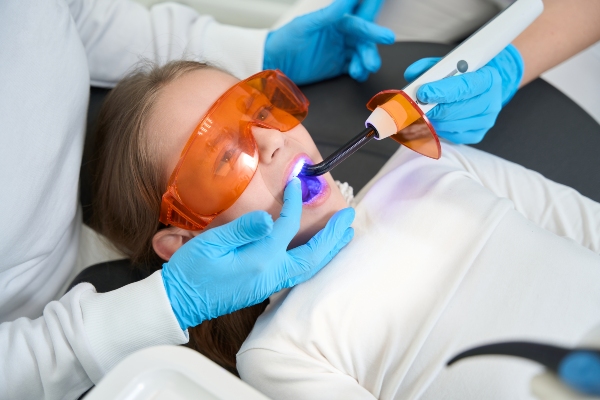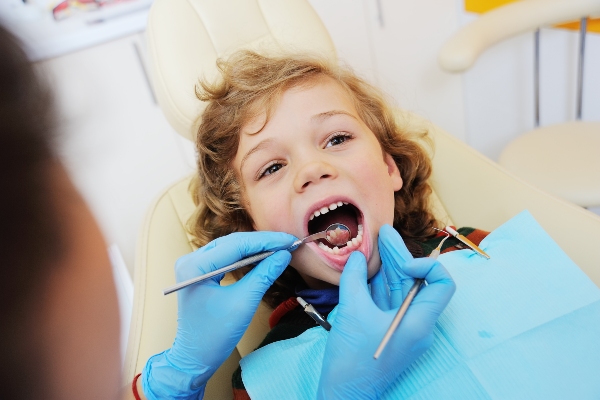Does a Pediatric Dentist Handle Dental Emergencies?

It is true that a pediatric dentist undergoes special training to care for and treat developing mouths, but oftentimes, that training does not involve dental emergencies. More often than not, adults must visit a specialized dentist for emergency care, and the same goes with children.
Where to find an emergency pediatric dentist
It is always a good idea for parents to have an idea of who to call in the event that a pediatric dental emergency arises. While most pediatric dentists should be able to refer patients, there is no telling that a dentist will be available when a parent calls in for a referral.
Moreover, when a child is experiencing a pediatric dental emergency, immediate treatment is almost always necessary to save the tooth. Depending on the nature of the emergency, immediate treatment may be a matter of life or death.
Fortunately, parents can prevent such drastic consequences by asking the child's pediatric dentist ahead of time for the name, number and location of a trustworthy emergency dentist. Most dentists will be more than happy to provide this information.
When emergency pediatric dental care is necessary
Emergency pediatric dental services are designed to quickly relieve a child of oral pain caused by toothaches, abscesses, cavities or trauma. Emergency dentists often specialize in tooth removal, pain management, restorations, tooth repair and treatment of dental infections. One should not visit an emergency dentist for something as everyday as a cavity. Below are a few instances in which it might be necessary take one's child to an emergency pediatric dentist.
Knocked-out (avulsed) teeth
Children lose teeth to make way for adult teeth, but despite this, a parent should never take an avulsed tooth lightly. Though one will grow back in its place, an improperly cared for knocked-out tooth may lead to infection, alignment issues and other problems.
Broken or fractured tooth
Children suffer from broken or fractured teeth more often than parents might think. Sports, rough housing and daily activities may result in dental emergencies. When an emergency does arise, a parent should gather as many pieces of the tooth as possible and head to the dentist.
Severe toothache
When a child complains of a severe toothache or pressure in the mouth, it could be a sign of a deeper issue. To prevent adverse complications, the parent should take the child to an emergency dentist as quickly as possible.
Dental abscess
When a child complains of a bad taste in the mouth and exhibits swollen gums and a fever, they might have a tooth abscess. A tooth abscess requires immediate dental attention, as, if left untreated, the infection can spread to other areas of the body.
Dental decay
Though a typical pediatric dentist can help treat tooth decay, if the decay is serious enough, it may require the attention of a pediatric emergency dentist. This is especially the case if a child experiences chronic pain or discomfort.
Conclusion
Because parents never know when a dental emergency may arise, it is always best to be prepared. Talk to your pediatric dentist about receiving an emergency dentist referral today.
Request an appointment here: https://www.hvkidsmiles.com or call Hudson Valley Pediatric Dentistry at (845) 363-4177 for an appointment in our Middletown office.
Check out what others are saying about our services on Yelp: Read our Yelp reviews.
Recent Posts
Dental fillings for kids restore the smile for years to come. Proper aftercare and consistent oral hygiene help to ensure your child gets the most out of their fillings. Thankfully, caring for these restorations is simple and straightforward, particularly with the help of a pediatric dentist.A dental filling is a dental restoration that “fills” cavities…
Dental fillings are a key part of protecting children’s oral health. When prevention efforts fail, this simple procedure stops cavities from doing further damage to dental health. Here, we take a closer look at the benefits of treating childhood tooth decay with dental fillings for kids.According to the Centers for Disease Control and Prevention (CDC),…
Cavities are a common dental health issue, and as kids learn to care for their teeth, they are often more prone to developing them. Dental fillings for kids can help avoid future oral health complications and protect their young smiles. Here are the basics of the treatment process that you should know as a parent…
Curious about dental fillings for kids? Read on to learn more. As your kid ages, you most likely have many questions about their overall health. Questions like "Are dental fillings for kids necessary?" or "What happens to baby teeth with nontreated cavities?" These are crucial questions to think about, and this article addresses them so…


